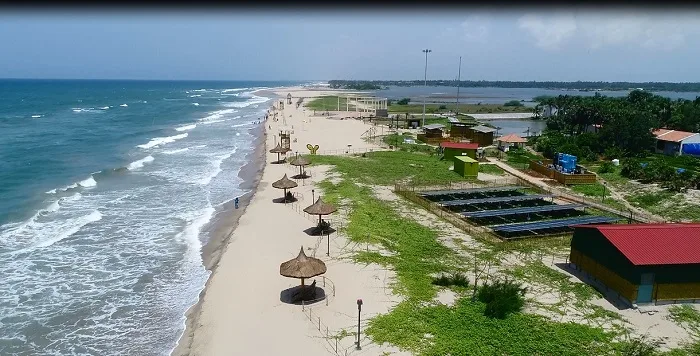A total of 10 beaches in India have been conferred with internationally recognized Blue Flag Certification.
These beaches situated in 6 States and 3 Union Territories have been developed at par with the best international beaches with safety and ecologically sustainable infrastructure, acceptable bathing water quality, self-sustaining energy supply, and environmentally sound services/management measures.
The iconic Blue Flag is one of the world's most recognised voluntary awards for beaches, marinas, and sustainable boating tourism operators. In order to qualify for the Blue Flag, a series of stringent environmental, educational, safety, and accessibility criteria must be met and maintained.

Under the Integrated Coastal Zone Management Project, the Ministry of Environment, Forest & Climate Change (MoEFCC) has piloted Beach Environment & Aesthetic Management Service (BEAMS) Programme.
Under this programme, various activities related to pollution abatement, beach awareness, aesthetics, safety, surveillance services, and environmental education, etc., have been done at identified beaches aimed to achieve international standards for Blue Flag Beach Certification.
The 10 beaches with internationally recognized Blue Flag Certification in India are:
Shivrajpur, Devbhumi Dwarka District, Gujarat
Ghoghla (Diu) Dadara Nagar Haveli and Daman & Diu
Padubidri, Udupi District, Karnataka
Kasarkod, Karwar District, Karnataka
Kappad, Kozhikode District, Kerala
Kovalam, Kanchipuram District, Tamil Nadu
Eden, Puducherry District, Puducherry
Rushikonda, Vishakhapatnam District, Andhra Pradesh
Golden, Puri District, Odisha
Radhanagar (Havelock), Andaman & Nicobar Islands
Kovalam in Tamil Nadu and Eden in Puducherry beaches were accorded the Blue Flag Certification, last year.
In a written reply in Rajya Sabha today, Minister of State for Environment, Forest & Climate Change Ashwini Kumar Choubey informed that the National Center for Coastal Research (NCCR) under the Ministry of Earth Sciences (MoES) has conducted studies on the qualitative analysis of litter in different beaches along the east and west coast of India.
Studies indicated that the plastic litter from tourism varies from 40% to 96%. As per the studies conducted by MoEF&CC and MoES, most of the harbors and beaches have high beach litter.




















